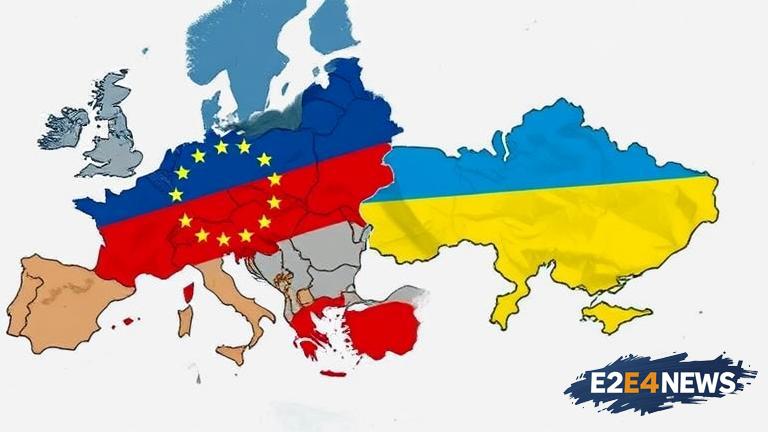The ongoing conflict between Russia and Ukraine has sparked concerns across Europe, with Hungary’s Prime Minister Viktor Orban recently expressing his reservations about Ukraine’s bid to join the European Union. Orban warned that Ukraine’s accession to the EU could potentially bring the war to Hungary’s borders, citing the country’s geographical proximity to the conflict zone. The Hungarian leader’s comments come as Ukraine continues to push for EU membership, despite the ongoing conflict with Russia. The situation has raised concerns among EU member states, with some expressing doubts about Ukraine’s ability to meet the necessary criteria for membership. Orban’s statement has sparked a debate about the potential consequences of Ukraine’s EU membership, with some arguing that it could lead to a further escalation of the conflict. The Russian-Ukrainian conflict has already had significant repercussions for the region, with thousands of civilians caught in the crossfire. The international community has been calling for a peaceful resolution to the conflict, but a lasting solution remains elusive. The EU has been providing significant financial and military aid to Ukraine, but the situation on the ground remains volatile. Orban’s comments have been seen as a reflection of the concerns shared by many EU member states, which are wary of being drawn into the conflict. The Hungarian Prime Minister has been a vocal critic of the EU’s handling of the crisis, arguing that the bloc’s policies have only served to exacerbate the situation. The conflict has also had significant economic implications, with trade between Russia and Ukraine severely impacted. The EU has imposed significant sanctions on Russia, which has retaliated with its own set of counter-sanctions. The situation has raised concerns about the potential for a wider conflict, with some warning that the situation could spiral out of control. Orban’s statement has been seen as a call for caution, with the Hungarian leader urging the EU to carefully consider the potential consequences of Ukraine’s membership. The EU has been keen to expand its membership to include countries from the former Eastern Bloc, but the situation in Ukraine has raised significant concerns. The conflict has also had significant humanitarian implications, with thousands of civilians displaced and in need of aid. The international community has been working to provide assistance to those affected, but the situation remains dire. The EU has been providing significant funding for humanitarian efforts, but more needs to be done to address the crisis. Orban’s comments have sparked a wider debate about the EU’s role in the conflict, with some arguing that the bloc needs to take a more proactive approach to resolving the crisis. The situation in Ukraine remains highly volatile, with the potential for further escalation always present. The EU needs to carefully consider the potential consequences of Ukraine’s membership, taking into account the potential risks and benefits. The conflict has already had significant repercussions for the region, and the EU needs to be careful not to exacerbate the situation. The Hungarian Prime Minister’s comments have been seen as a warning, urging the EU to exercise caution in its dealings with Ukraine. The situation remains highly complex, with multiple factors at play. The EU needs to carefully consider the potential consequences of its actions, taking into account the potential risks and benefits. The conflict in Ukraine has significant implications for the wider region, and the EU needs to be careful not to make the situation worse. The international community needs to work together to find a peaceful resolution to the conflict, one that takes into account the needs and concerns of all parties involved. The situation in Ukraine remains highly volatile, and the EU needs to be careful not to exacerbate the situation. The Hungarian Prime Minister’s comments have been seen as a call for caution, urging the EU to carefully consider the potential consequences of its actions.
